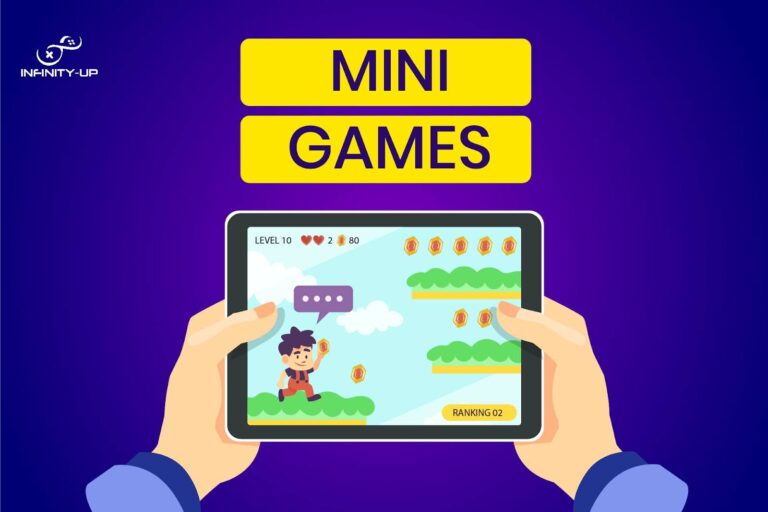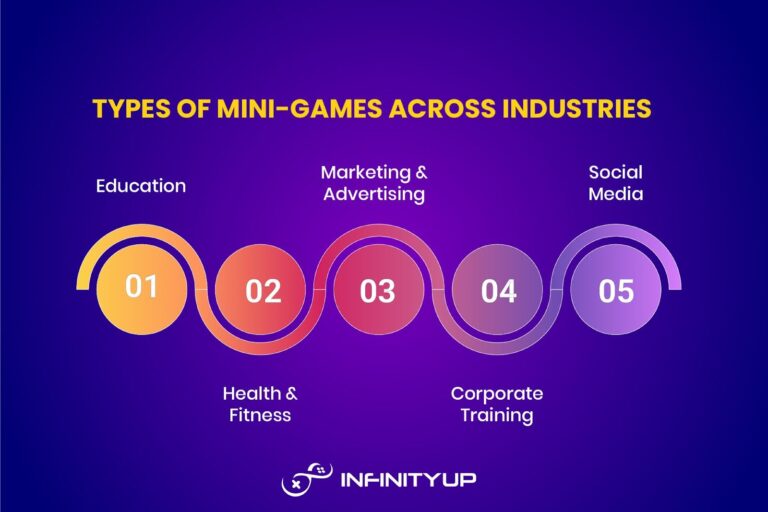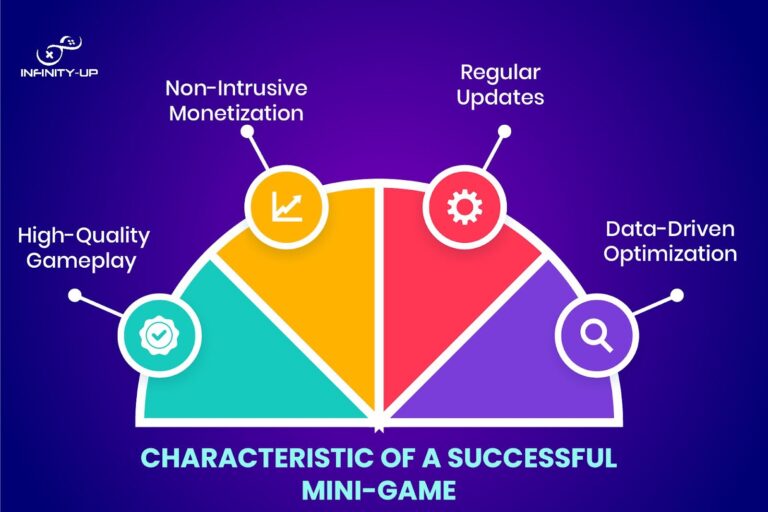Mini-Games: A Gateway to Engaging Experiences
Mini-Games: A Gateway to Engaging Experiences
In the ever-evolving gaming industry, mini-games have secured a vital role, giving players a refreshing break from intense gameplay while delivering engaging and rewarding experiences. Whether integrated into more prominent titles or created as standalone adventures, mini-games captivate audiences with their simplicity, accessibility, and enjoyable mechanics.

What Are Mini-Games?
Mini-games are compact, self-contained experiences designed to enhance player engagement, whether integrated into a larger game or offered as standalone adventures. Featuring simple mechanics, quick play sessions, and intuitive rules, they keep players entertained while driving retention, increasing rewards, and advancing the storyline.
Why Are Mini-Games Popular?
AAA games are renowned for their exceptional quality, and several key characteristics define them:
Quick and Fun Gameplay:
Mini-games are designed to be short, making them ideal for casual gamers who want to enjoy a game without investing too much time.
Variety Enhancement:
They add diverse gameplay elements, preventing monotony by incorporating different genres and mechanics.
Rewards and Progression:
Many mini-games provide in-game rewards, motivating players to participate and enrich their overall gameplay experience.
Skill Development:
Some mini-games test reaction speed, memory, or strategy, helping players improve different aspects of their gaming skills.
Various Types of Mini-Games Across Industries
Mini-games, small interactive challenges within larger experiences, have become widespread across various industries. Their engaging and entertaining nature makes them ideal for increasing user interaction, making learning more enjoyable, and enriching overall experiences. Here’s how mini-games are being utilized across different fields and the impact they’re making.
Education:
In education, mini-games make studying more exciting by incorporating gamification, which keeps students engaged and motivated. Gamification is influencing education through interactive challenges, where teachers create quiz-based games for real-time student competition.
Health & Fitness:
Fitness apps incorporate mini-games to motivate users to stay active and maintain healthy habits. These games challenge players to complete physical tasks and build better routines
Marketing & Advertising:
Brands leverage mini-games to create engaging and memorable ads. By incorporating brand elements into gameplay, they offer a unique experience that resonates with users. In recent years, Marketing Through Video Games has become a powerful strategy for driving engagement, boosting transactions, and achieving marketing goals. Brands connect with audiences in innovative ways, either by developing custom games or partnering with existing titles.
Corporate Training:
More companies are integrating mini-games into their training programs to make learning more engaging and interactive. These games simulate real-world scenarios, allowing employees to practice new skills in a stress-free environment.
Social Media:
Social media platforms are adding mini-games to keep users engaged and encourage friendly competition. These games often lead to more interaction and sharing among friends, which increases time spent on the platform.

Can mobile games be categorized as mini-games?
Mini-games found within larger games are typically self-contained with a simple gameplay loop, but they lack the depth needed to stand alone as full-fledged games. The key distinction between them and most bite-sized mobile games lies in gameplay depth.
For example, consider Hybrid Casual games. These titles blend the quick, accessible gameplay of Hyper Casual games with the deeper progression systems and monetization features of Casual or Mid-Core games.
What Makes a Successful Mini-Game?
To achieve successful monetization, mini-games need to meet several important criteria.
High-Quality Gameplay:
A high-quality mini-game with seamless mechanics, user-friendly controls, and eye-catching graphics will capture players’ attention, enhance engagement, and boost retention, key factors for maximizing visibility and driving in-game monetization.
Non-Intrusive Monetization:
Finding the right balance in monetization is crucial. Games that overuse ads or impose aggressive paywalls can frustrate players, making it essential to implement monetization strategies that enhance rather than disrupt the gaming experience.
Regular Updates:
To retain players, mini-games must offer fresh content. Adding new levels, characters, or seasonal events is an effective way to sustain engagement and boost long-term revenue.
Data-Driven Optimization:
Analyzing player behavior and game performance enables developers to refine their revenue strategies and enhance the overall experience. This ensures the game remains engaging and relevant to players over time.

Mini-Games with INFINITY-UP’s Expertise
INFINITY-UP specializes in developing high-quality mini-games with engaging mechanics, intuitive controls, and stunning visuals. With expertise in game design, animation, and XR, the team crafts immersive experiences that captivate players from concept to full-scale production.
Whether you need game design, development with Unity or HTML5, or monetization strategies, INFINITY-UP provides tailored solutions for success. With gamification, leaderboards, and rewards, their mini-games boost engagement and revenue. Partner with INFINITY-UP to create standout mini-games in the competitive gaming market.
Conclusion
Mini-games are booming right now because they’re easy to play, quick to enjoy, and perfect for mobile users. This trend presents an exciting opportunity for businesses to create fun, engaging, and brand-aligned experiences. These bite-sized games can enhance brand awareness, keep customers engaged, and generate revenue through in-app purchases, ads, or virtual goods.
Additionally, mini-games offer valuable insights into player preferences and behaviors, helping businesses refine their strategies. By embracing this trend, companies can tap into a growing market and strengthen connections with their audience.
Get a Free Quote today and start creating your mini-game!
FAQ
-
- Video games (across all genres and platforms).
- Mobile apps
- Websites
- Social media platforms
- Educational software
- Even physical locations (like arcade machines or waiting areas).
- Unity (for cross-platform 2D/3D mini-games)
- HTML5 (for browser-based mini-games)
- Unreal Engine (for high-quality visuals and mechanics)
- JavaScript and WebGL (for interactive web experiences)
A: Yes! Mini-games are an effective tool for businesses to increase engagement, promote brand awareness, and incentivize customer interactions. They can be used in loyalty programs, promotional campaigns, and educational content.

